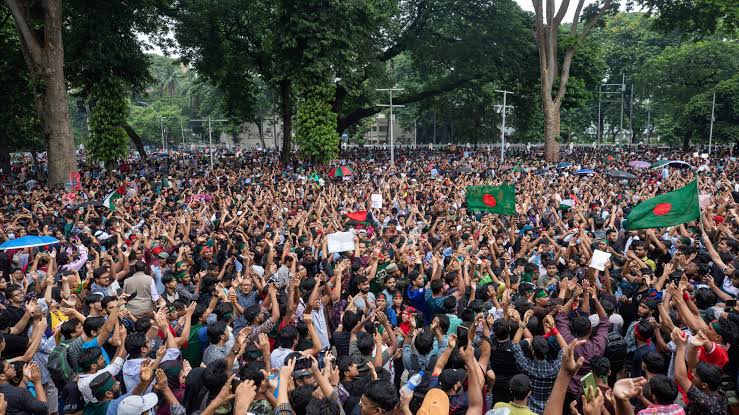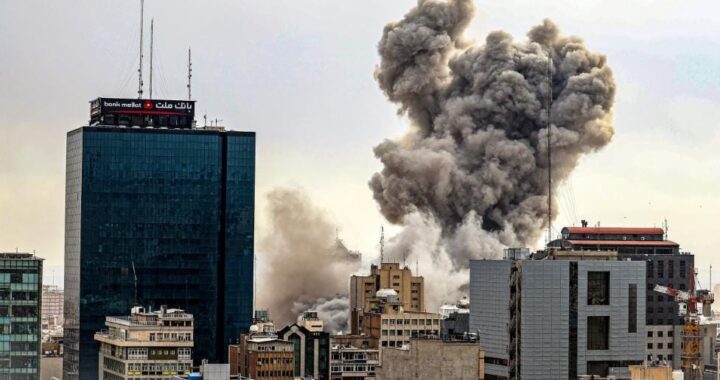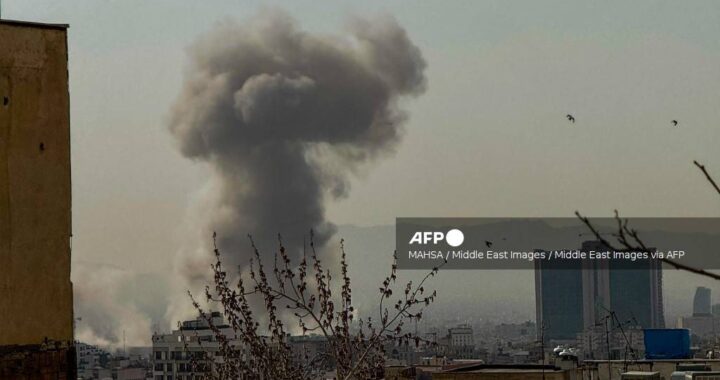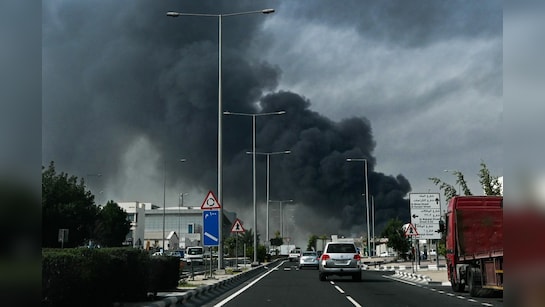Hundreds of thousands of Bangladesh protesters demanding Prime Minister Sheikh Hasina resign clashed with government supporters Sunday, with dozens killed in one of the deadliest days since demonstrations began.
Rallies that began last month against civil service job quotas have escalated into some of the worst unrest of Hasina’s 15-year rule and shifted into wider calls for the 76-year-old to step down.
At least 55 people were killed on Sunday alone, including 14 police officers, with the rival sides battling with sticks and knives and security forces firing rifles, taking the total killed since protests began in July to at least 261.
Police said protesters attacked their officers, including storming a station in the northeastern town of Enayetpur.
“The terrorists attacked the police station and killed 11 policemen,” said Bijoy Basak, a deputy inspector general.
AFP journalists reported hearing sustained crackles of gunfire after dark on Sunday, with protesters defying a nationwide curfew.
Mobile internet was tightly restricted.
‘Final protest’
In several cases, soldiers and police did not intervene to stem the protests, unlike the past month of rallies that repeatedly ended in deadly crackdowns.
In a hugely symbolic rebuke of Hasina, a respected former army chief demanded the government withdraw troops and allow protests.
Demonstrators in the capital Dhaka, surrounded by a tightly packed and cheering crowd, waved a Bangladeshi flag on top of an armoured car as soldiers watched, according to videos on social media verified by AFP.
Asif Mahmud, one of the key leaders in the nationwide civil disobedience campaign, called on supporters to march on Dhaka on Monday.
“The time has come for the final protest”, he said.
Troops briefly imposed order after violence erupted in July.
However, protesters returned to the streets in huge numbers this month in a non-cooperation movement aimed at paralysing the government.
‘Brought to justice’
Vast crowds of protesters, many wielding sticks, packed into Dhaka’s central Shahbagh Square on Sunday, with street battles in multiple sites, police said.
“There were clashes between students and the ruling party men,” police inspector Al Helal told AFP, saying two young men were killed in Dhaka’s Munshiganj district.
“One of the dead was hacked in his head and another had gunshot injuries.”
Another policeman, who asked not to be identified, said “the whole city has turned into a battleground”.
Two people were killed in the northern city of Kishioreganj, where protesters torched a ruling party office, police said.
Police and doctors also reported deaths in districts in the north, west, south and centre of the country.
Some former military officers have joined the student movement and ex-army chief General Ikbal Karim Bhuiyan turned his Facebook profile picture red in a show of support.
“We call on the incumbent government to withdraw the armed forces from the street immediately,” Bhuiyan told reporters Sunday in a joint statement alongside other senior ex-officers, condemning “egregious killings, torture, disappearances and mass arrests”.
“Those who are responsible for pushing people of this country to a state of such an extreme misery will have to be brought to justice”, he said.
‘No longer about job quotas’
Current army chief Waker-uz-Zaman told officers at military headquarters in Dhaka on Saturday the “Bangladesh Army is the symbol of trust of the people”.
“It always stood by the people and will do so for the sake of people and in any need of the state,” he said, according to an army statement, which gave no further details and did not say explicitly whether the army backed the protests.
The demonstrations have grown into a wider anti-government movement across the South Asian nation of about 170 million people.
It has attracted people from all strata of Bangladesh society, including film stars, musicians and singers. Rap songs calling for people’s support have spread widely on social media.
“It is no longer about job quotas,” said Sakhawat, a young female protester who gave only one name, and called Hasina a “killer”.
“What we want is that our next generation can live freely in the country.”
A group of 47 manufacturers in the economically vital garment sector said Sunday they stood in “solidarity” with the protesters.
Obaidul Quader, general secretary of Hasina’s ruling Awami League, has called on party activists to gather “in every district” nationwide to show their support for the government.
Take international news everywhere with you! Download the France 24 app
Hasina has ruled Bangladesh since 2009 and won her fourth consecutive election in January after a vote without genuine opposition.
Her government is accused by rights groups of misusing state institutions to entrench its hold on power and stamp out dissent, including through the extrajudicial killing of opposition activists.
Demonstrations began in early July over the reintroduction of the quota scheme, which reserved more than half of all government jobs for certain groups. It has since been scaled back by Bangladesh’s top court.
(AFP)
Please don’t forget to “Allow the notification” so you will be the first to get our gist when we publish it.
Drop your comment in the section below, and don’t forget to share the post.
Never Miss A Single News Or Gists, Kindly Join Us On WhatsApp Channel:
https://whatsapp.com/channel/0029Vad8g81Eawdsio6INn3B
Telegram Channel:
https://t.me/gistsmateNG





